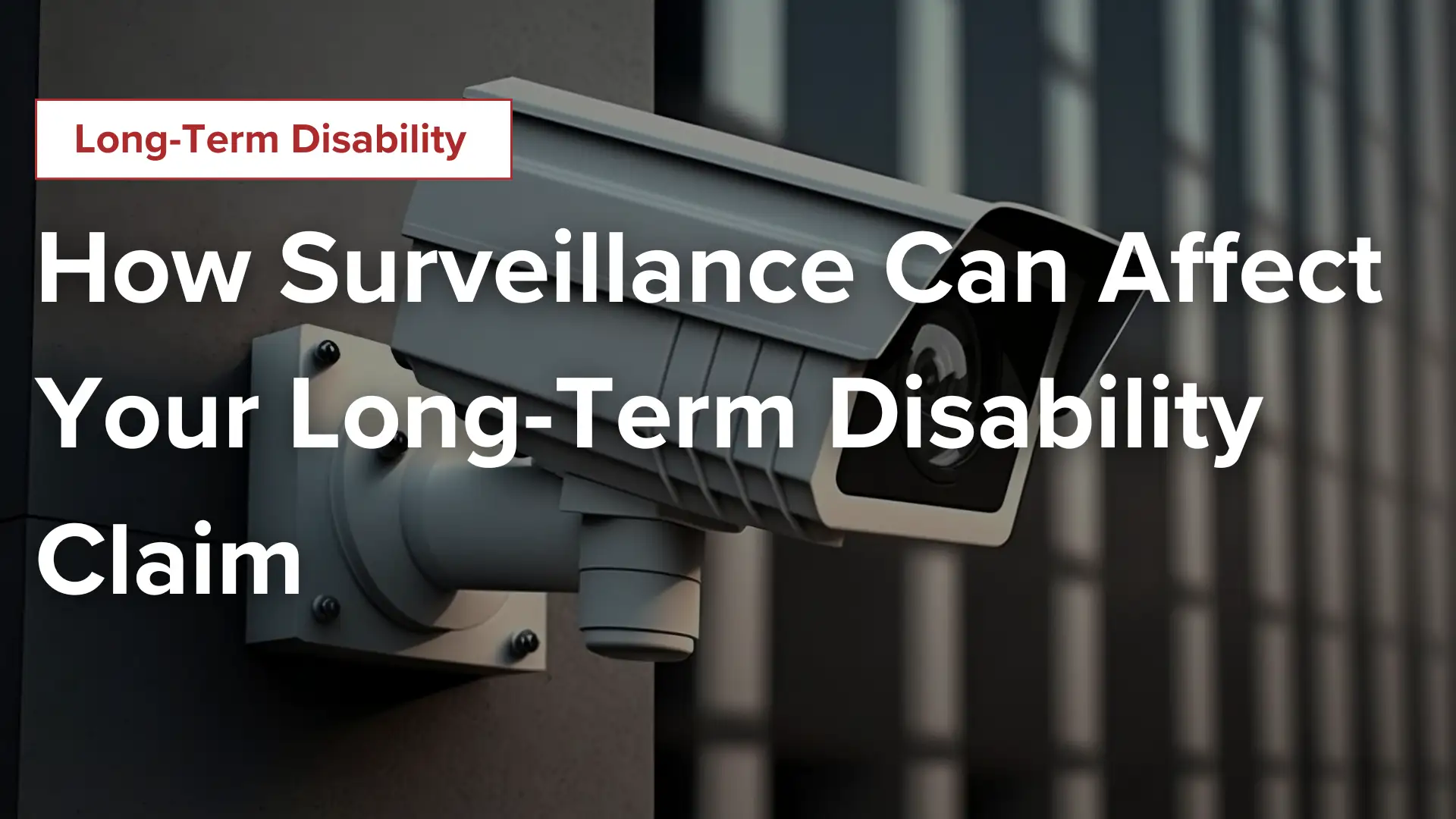Posted on Monday, September 1st, 2025 at 9:00 am

Filing a long-term disability claim in Philadelphia isn’t easy—especially when disability claim surveillance comes into play. Insurers may hire private investigators, track activity logs, or scour social media to find reasons to deny benefits. By learning how these tactics work, you can better protect your rights, present strong evidence, and safeguard the benefits you rely on.
What Is Disability Claim Surveillance?
Disability claim surveillance involves the methods insurers use to observe a claimant’s daily living activities. While insurance companies often say these investigations verify functional limitations, the fundamental objective usually centers on finding reasons to deny or reduce payouts, making Understanding Surveillance in Disability Claims an essential step for anyone facing this process.
Surveillance can include recording public behavior, tracking activity logs, and compiling detailed reports. Even everyday tasks—such as lifting groceries, walking short distances, or attending a child’s event—may be taken out of context. These moments can later be portrayed as exaggerated symptoms or misrepresentations, which can damage the credibility of your claim.
Because insurers use this information to challenge medical records, claimants must understand both the risks and legal boundaries of surveillance. Monitoring may be lawful in public spaces, but hidden cameras, harassment, or trespassing often cross into illegal territory.
What Types of Surveillance Do Insurers Use?
Insurers employ several methods to track claimants throughout the disability claim process. Understanding these approaches helps you avoid missteps that could affect your benefits.
- Video Footage and Photography: A private investigator may follow you in public and capture video footage or photographs of your movements. Even simple daily living activities, like walking the dog or carrying groceries, may later appear in a surveillance report as evidence that you can work.
- Social Media Monitoring: Insurers frequently review claimants’ social media accounts. Photos, check-ins, or status updates can be used to argue that your condition does not match your medical records. Even lighthearted posts may be taken out of context.
- Activity Logs: Some companies track your hobbies, medical visits, or travel routines. These logs create a timeline that can challenge your reported functional limitations.
- Interviews and Public Behavior: Insurers may observe how you behave in public, such as how long you stand in line at a store or whether you carry shopping bags.
Together, these surveillance tactics give insurers a powerful set of tools to dispute or deny your claim.
How Surveillance Affects Your Claim
Insurers often use surveillance reports to question functional limitations or imply that a claimant has misrepresented their condition. These reports become powerful tools for insurance companies seeking to reduce or deny benefits.
- Potential for Benefits Denial: If video footage or recorded evidence seems to contradict your medical records, insurers may argue your claim is invalid. For example, if you report severe mobility issues but are filmed walking short distances, they may suggest you exaggerated your symptoms. Even small, ordinary activities can be misinterpreted when viewed without a medical context.
- Impact on Medical Records: Doctors may receive copies of surveillance reports that conflict with your personal accounts. This creates doubt, not only about your credibility, but also about the accuracy of your medical history. Physicians could alter their opinions, which may harm your case.
- Legal and Ethical Questions: Surveillance is legal in public spaces, but insurers cannot trespass, use hidden cameras, or harass claimants. If you suspect invasive practices, be aware of your rights—and hire a lawyer who can challenge unlawful surveillance on your behalf.
Surveillance can shape how insurers and doctors view your condition, making it crucial to recognize these tactics and safeguard your claim.
Protecting Yourself From Surveillance

Knowing how insurers operate helps you prepare for surveillance and protect your claim.
- Stay Consistent: Always be consistent in your daily living activities, medical records, and social media posts.
- Limit Public Sharing: Avoid posting on social media while your claim is pending. Even innocent posts may become tools for claimant surveillance.
- Document Functional Limitations: Maintain accurate personal records that reflect your condition. Keep a journal of symptoms, activity limitations, and treatments.
- Work With Experienced Legal Help: An attorney at Capitan Law can challenge surveillance evidence and highlight how insurers misuse recorded footage. Strong representation increases your chance of securing benefits.
By staying mindful of these strategies and seeking the right support, you can reduce the risks surveillance poses to your disability claim.
Fight Back Against Invasive Surveillance Tactics
Surveillance in long-term disability claims in Philadelphia often feels invasive and unfair. However, you do not have to handle it alone. If your insurer uses claimant surveillance against you, an attorney can step in to fight back. Our team is here to help you understand your options and guide you through the legal process with care and support.
Call Capitan Law at (267) 419-7888 to schedule a consultation. Our Philadelphia team understands how insurers operate and will be by your side at every step.
Related Post
Why Would a Disability Claim Be Denied?
What Role Does Your Doctor Play in a Long-Term Disability Claim?